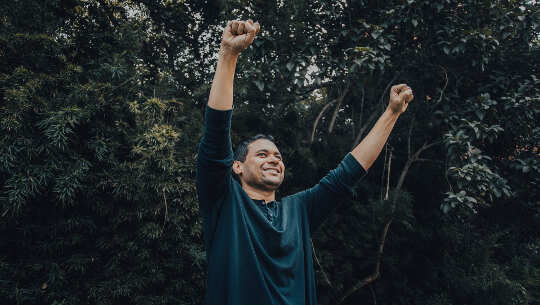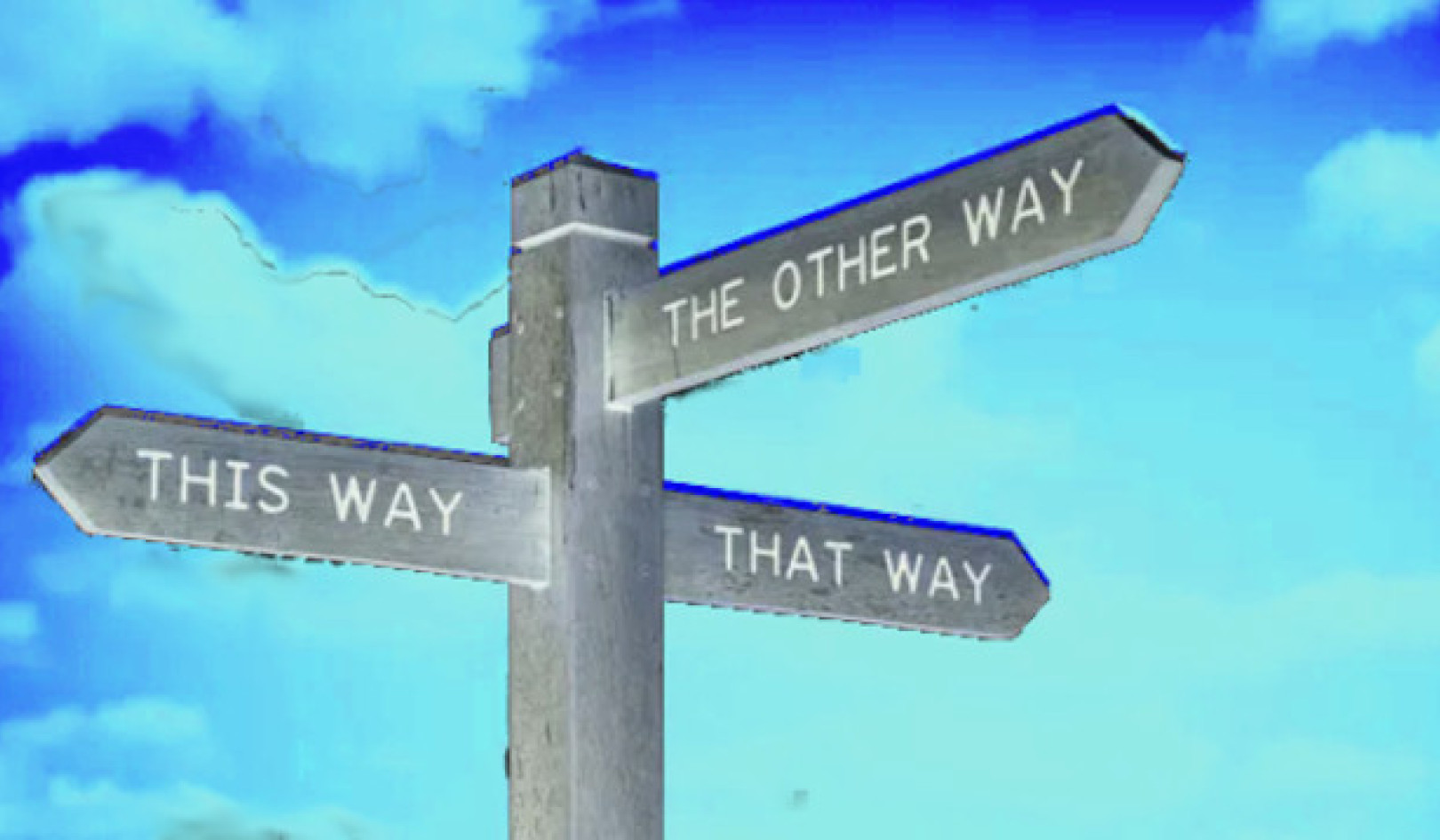
Image by Hugo Roger
In September 2007, i awoke groggy in Bethesda Naval Hospital with tubes running from every opening in my body, the heart monitor beeping. The previous week had been a total blur, with vast periods of time completely lost. I remembered waking up in the Combat Support Hospital in Baghdad after my team was caught in an ambush. I remembered waking up in Balad, Iraq, where they take soldiers with combat head wounds for treatment.
Time vanished, and then I woke up in Landstuhl, Germany, for more emergency surgeries and blood transfusions. I remember the chaotic flight home where multiple times I thought I was going to suffocate due to excessive congestion in my tracheotomy. And I remember the surreal feeling of being back on American soil, riding in the blue bus to Bethesda Naval Hospital.
Now I was lying in my hospital bed, weak and barely able to move, as a young, energetic doctor talked me through the path ahead. Despite everything, I was determined to get out of the hospital as fast as possible. But I couldn’t say that to the doctor, due to my extensive facial wounds and the tracheotomy. I couldn’t move my left arm after it was nearly sheared off by enemy gunfire. The only way I could communicate was through writing.
“Doc, how many months will it take to put me back together,” I wrote on the pad on my lap, “so I can get back to the fight and my teammates?”
Her face registered disbelief. She shook her head.
“Months?” she said. “Lieutenant, we’re talking years to put you back together.”
I sank back into my bed. Years.
Don’t Count Me Out
A few days later, two visitors came in and began to talk about what bad shape I was in.
“What a shame,” they said, as I drifted in and out of sleep. “What a shame we send these young men and women off to war and they come home broken. They will never be the same. Most will struggle to make it back into society. Most will never be whole. What a waste.”
I couldn’t talk, and although I still had some ringing in my ears from the bullet that had torn half my face off, I could hear just fine. As I listened to them talk about me, I felt something stirring in my gut.
Were these people, these supposed friends, right? Was this how things were going to be now? Was this how people were going to see me? A cripple, a disfigured man forever ruined by a war that had claimed so many, a powerless victim?
Was I going to be looked down on for the rest of my life as an object of pity?
Back at the hospital in Bethesda, as the pity and stares of my guests bounced off the inside of my damaged brain, I was lucky to be alive. I knew that. Shouldn’t that be enough? the looks and whispers seemed to say.
I began to doubt myself. Was a full recovery too much to hope for? Shouldn’t I be content to just be breathing? Wasn’t getting my hopes up for what seemed impossible—getting back to the man I had been— just setting myself up for a bigger fall later?
Maybe this was it. Maybe I needed to accept the fact that I would always be less than I had been.
But why did that feel so much like quitting? Why did it feel like giving in?
Beating the Odds
That stinging in my gut turned into a burning.
The pity party left.
My wife, Erica returned to my room. I motioned for her to hand me my notepad. I began to write furiously, my one good hand racing across the page.
“Attention: to all who enter here,” I wrote. “If you are coming into this room with sorrow or to feel sorry for my wounds, go elsewhere. The wounds I received, I got in a job I love, doing it for people I love, supporting the freedom of a country I deeply love. I am incredibly tough and will make a full recovery... This room you are about to enter is a room of fun, optimism, and intense rapid regrowth. If you are not prepared for that, go elsewhere. From: the management.”
I set down my pen, took a deep breath, and motioned for Erica to tape the note to the door.
Never again, I thought. Never again would I let anyone look at me with pity. Never again would I look at myself with pity. I would OVERCOME.
Since then I have undergone forty reconstructive surgeries. I have had six blood transfusions, and I wore a tracheotomy for seven months and two days. I’ve had approximately 1,500 stitches, two hundred staples, five plates, a titanium orbital floor, fifteen screws, eight pins, twenty skin grafts, and four bone grafts, including a calvarial bone graft. I have had my jaw shattered, broken, and rebroken three times. My mouth was wired shut for over twelve weeks. I lost over fifty pounds. I have spent approximately 190 hours in surgery under anesthesia.
Despite all that, I’m still standing, I’m still breathing, and most of all, I am still in control of my destiny. In the immortal words of my favorite poem, “Invictus,” I am the master of my fate, I am the captain of my soul.
The Message Spreads
As it happened, on the day I wrote and hung the sign on my hospital door, there was a legendary New York fire captain and marine named John Vigiano visiting. Vigiano had lost both sons on 9/11. To heal his broken soul and to motivate wounded warriors, Vigiano started making regular pilgrimages to Bethesda. That day, he saw my sign, took a picture of it, and posted it on social media.
Then something amazing happened. Within a few days, his post went viral. CBS This Morning and other major news programs talked about it. National newspapers wrote articles about it.
What came to be known as “The Sign on the Door” was seen by many people as a perfect illustration of the American spirit to persevere in the midst of challenges. For me, it was a message to the world that I was ready for the next challenge.
This book is my invitation for you to nail your own Sign on the Door and say, “I will not be limited by the pain and trauma in my past. I will not be held back by the challenges in my future. I will be forged by them because I am the master of my fate. I will overcome.”
It's Never Too Late
You must choose to never give up, to always advance, and to make the moment you falter into the moment you get up to press on anew.
And if you feel like you’ve already quit, that there is no recovery from the failure that you’ve been through, that you might as well stop trying now, let me just say that I’ve been there, and it’s never too late.
It’s never too late to get up again. It’s never too late to come back. It’s never too late to overcome. I have the scars on my face to prove it, not to mention the deep mental and emotional scars from some of my own failures. I know what it’s like to believe you’ll never be able to come back.
And yet, I’ve overcome. I believe you can too.
Choosing to Overcome
This is what it takes: you must choose to overcome. You can be a good leader, an amazing member of a team, have the best plans in the world, but it’s the gritty, tenacious desire to overcome— and the knowledge that there is nothing in the world that will hold you down permanently—that will bring you through any life ambush the world can throw at you.
I believe we are forged in the fires of adversity. We are made strong by the greatness of the challenges that face us. And when something makes us uncomfortable, that’s the exact moment to lace up our combat boots, pick up our rucksack, lean into the storm, and drive forward.
Stay awake to stay alive. You don’t have to have your face shot off to harness adversity to be a stronger person and leader. You just have to wake up and overcome.
Copyright 2020 by Jason Redman. All Rights Reserved.
Reprinted with permission of the publisher, Center Street,
a divn. of Hachette Book Group. www.centerstreet.com
Article Source
Overcome: Crush Adversity with the Leadership Techniques of America's Toughest Warriors
by Jason Redman
 Triumph over adversity using proven Special Operations habits and mindsets with this inspiring guide from retired Navy SEAL and New York Times bestselling author Jason Redman.
Triumph over adversity using proven Special Operations habits and mindsets with this inspiring guide from retired Navy SEAL and New York Times bestselling author Jason Redman.
Adversity can often catch you by surprise and leave you struggling with what to do next. What if you could confront any adversity, from the biggest challenges -- the loss of your job, divorce, health issues, bankruptcy -- to normal daily challenges -- a late flight, a disappointing phone call, a missed promotion, a bad day -- and not just survive it, but thrive afterwards?
Jason Redman was horrifically wounded in Iraq in 2007. He came back from this experience stronger than ever -- despite carrying scars and injuries he will have for the rest of his life. He went on to launch two successful companies and speaks all over the country on how to build better leaders through his Overcome mindset.
For more info and/or to order this book, click here.
About the Author
 Jason Redman is a retired Navy Lieutenant who spent eleven years as an enlisted Navy SEAL, and almost ten years as a SEAL officer. He was awarded the Bronze Star Medal with Valor, the Purple Heart, the Defense Meritorious Service Medal, the Navy Commendation Medal, the Joint Service Achievement Medal, five Navy Achievement Medals, and two Combat Action Ribbons.
Jason Redman is a retired Navy Lieutenant who spent eleven years as an enlisted Navy SEAL, and almost ten years as a SEAL officer. He was awarded the Bronze Star Medal with Valor, the Purple Heart, the Defense Meritorious Service Medal, the Navy Commendation Medal, the Joint Service Achievement Medal, five Navy Achievement Medals, and two Combat Action Ribbons.
After being severely wounded in Iraq in 2007, Jason returned to active duty before retiring in 2013. He is the founder of the Combat Wounded Coalition, a nonprofit corporation that inspires warriors to overcome adversity through leadership courses, events, and opportunities. He speaks about motivation and leadership across the country. He is the author of the New York Times bestselling memoir The Trident.



























